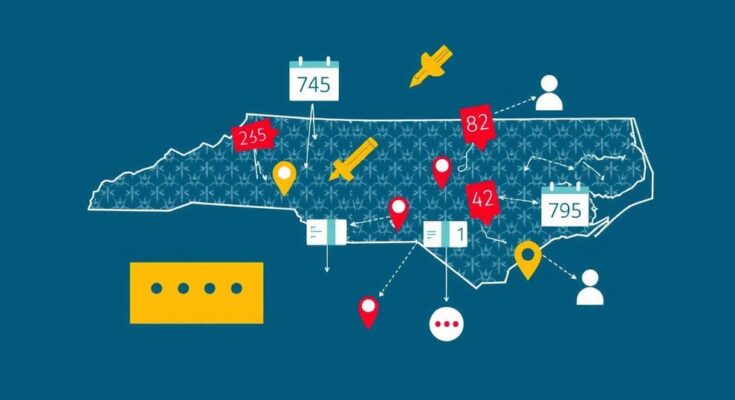The 2024 North Carolina election results may reshape the public education landscape, featuring the election of Mo Green as superintendent and a break in the Republican supermajority. With new Democratic leadership, there is potential for bipartisan collaboration to enhance public school funding and policies, although challenges remain concerning power dynamics and legislative actions.
The election results in North Carolina for 2024 may signify a significant shift in the landscape of public education governance, characterized by a broken Republican supermajority in the state House and the election of Democratic officials. Notably, Mo Green has emerged as the new superintendent of public instruction, winning against Republican Michele Morrow. He will be joined by other Democrats, including a newly elected lieutenant governor, creating possible avenues for bipartisan collaboration and policy advancement in education. The state’s educational framework involves multiple stakeholders, including the governor, state legislature, State Board of Education, and local school boards, all of which play vital roles in shaping educational policy. With the election of Josh Stein as governor, he will appoint numerous members to the Board of Education, potentially influencing the direction of state educational policies. Amidst these shifts, Green has committed to increasing investment in public education, particularly focusing on early learning, teacher support, and school safety. In a statement, Deanna Townsend-Smith expressed optimism regarding the future of public education in North Carolina, stating, “When there is balance in the system, it allows for the opportunity for people to come together and take action toward the priorities of the people.” This sentiment reflects a hopeful outlook for public education as the landscape becomes more balanced between party affiliations. However, concerns remain, particularly regarding potential Republican maneuvers to regain a supermajority in the legislature and the inherent power dynamics between the legislature and the Board of Education. As Green steps into his role, observers are keen to see how legislation unfolds, especially in terms of funding commitments for traditional public schools, which have faced challenges in recent years due to prioritization of alternative educational opportunities such as charter and private schools. Educators like Justin Parmenter express cautious optimism about the election results, emphasizing the need for a sustained focus on strengthening public schools as the primary educational choice. The potential for collaboration among governing bodies offers a pathway for more substantial funding and support for traditional public education, possibly signaling a trend away from recent voucher expansions that have diverted funds away from public institutions. Overall, the 2024 North Carolina election results present both challenges and opportunities for public education, with new leadership indicating a shift towards prioritizing investment in schools. Observers will monitor upcoming legislative actions closely, as they will ultimately determine the future of education financing and policy in the state.
Public education in North Carolina is at a pivotal junction, shaped by the outcomes of the 2024 elections where a major change in political leadership occurred. With the election of Mo Green as superintendent of public instruction and new Democratic officials in key state positions, there may be an opportunity for mending the previously polarized education landscape characterized by Republican supermajority dominance. The dynamics of power among educational governing bodies will be crucial in shaping policy direction and funding priorities in the coming years.
In summation, the 2024 elections in North Carolina have opened a potential pathway for more robust support and investment in public education. The newly elected officials and the breaking of the Republican supermajority may lead to collaborative efforts in policy-making that prioritize the needs of public schools and their students. The coming months will be pivotal in determining how these changes translate into tangible improvements in educational funding and governance.
Original Source: www.charlotteobserver.com




